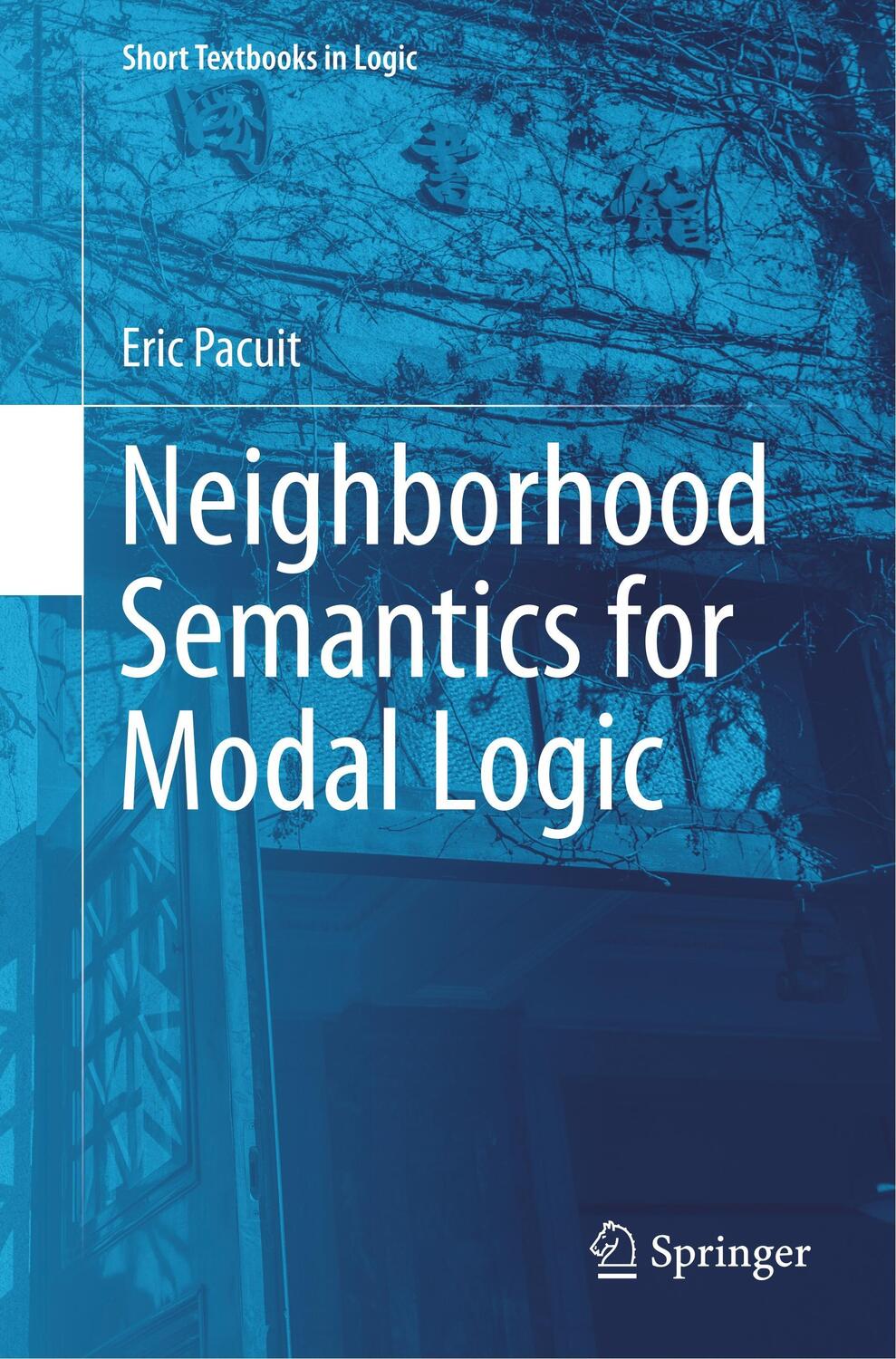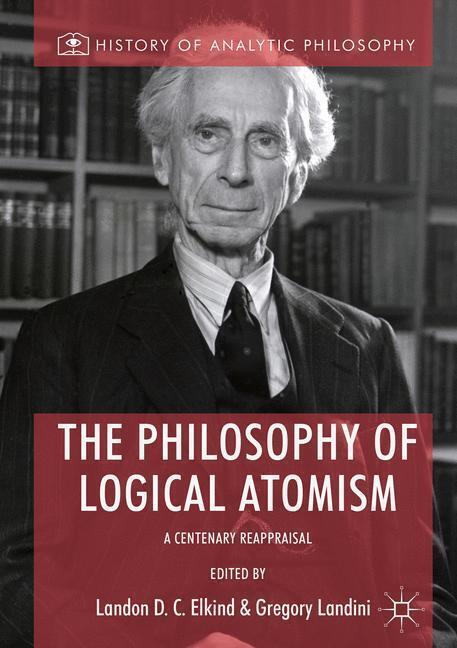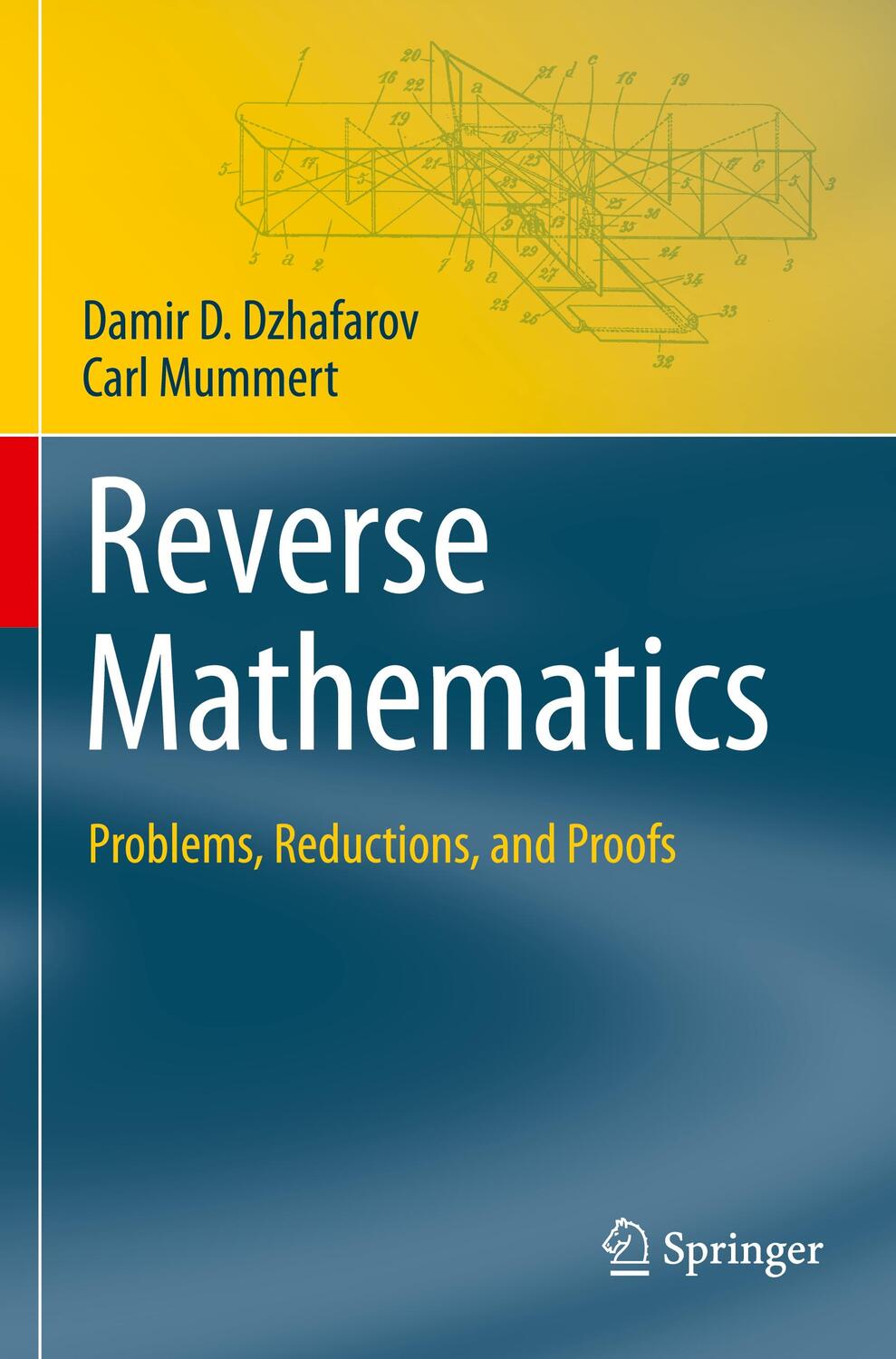Dekorationsartikel gehören nicht zum Leistungsumfang.
Sprache:
Englisch
40,65 €*
Versandkostenfrei per Post / DHL
Aktuell nicht verfügbar
Kategorien:
Beschreibung
This book offers a state-of-the-art introduction to the basic techniques and results of neighborhood semantics for modal logic. In addition to presenting the relevant technical background, it highlights both the pitfalls and potential uses of neighborhood models ¿ an interesting class of mathematical structures that were originally introduced to provide a semantics for weak systems of modal logic (the so-called non-normal modal logics).
In addition, the book discusses a broad range of topics, including standard modal logic results (i.e., completeness, decidability and definability); bisimulations for neighborhood models and other model-theoretic constructions; comparisons with other semantics for modal logic (e.g., relational models, topological models, plausibility models); neighborhood semantics for first-order modal logic, applications in game theory (coalitional logic and game logic); applications in epistemic logic (logics of evidence and belief); and non-normal modal logics with dynamic modalities.
The book can be used as the primary text for seminars on philosophical logic focused on non-normal modal logics; as a supplemental text for courses on modal logic, logic in AI, or philosophical logic (either at the undergraduate or graduate level); or as the primary source for researchers interested in learning about the uses of neighborhood semantics in philosophical logic and game theory.
This book offers a state-of-the-art introduction to the basic techniques and results of neighborhood semantics for modal logic. In addition to presenting the relevant technical background, it highlights both the pitfalls and potential uses of neighborhood models ¿ an interesting class of mathematical structures that were originally introduced to provide a semantics for weak systems of modal logic (the so-called non-normal modal logics).
In addition, the book discusses a broad range of topics, including standard modal logic results (i.e., completeness, decidability and definability); bisimulations for neighborhood models and other model-theoretic constructions; comparisons with other semantics for modal logic (e.g., relational models, topological models, plausibility models); neighborhood semantics for first-order modal logic, applications in game theory (coalitional logic and game logic); applications in epistemic logic (logics of evidence and belief); and non-normal modal logics with dynamic modalities.
The book can be used as the primary text for seminars on philosophical logic focused on non-normal modal logics; as a supplemental text for courses on modal logic, logic in AI, or philosophical logic (either at the undergraduate or graduate level); or as the primary source for researchers interested in learning about the uses of neighborhood semantics in philosophical logic and game theory.
Über den Autor
Eric Pacuit is an Assistant Professor of Philosophy at the University of Maryland, USA. Before coming to Maryland, Eric worked at Stanford University, USA; at the Institute for Logic, Language and Computation at the University of Amsterdam, Netherlands; and at the Tilburg Institute for Logic and Philosophy of Science at Tilburg University, Netherlands. His research primarily addresses issues in interactive epistemology and group decision-making - two interdisciplinary areas that make use of ideas and techniques from logic (especially modal logic), philosophy, game theory and social choice theory. His research has been generously supported by a grant from the National Science Foundation and a VIDI grant from the NWO (the Netherlands Organization for Scientific Research).
Zusammenfassung
Provides both the relevant technical background and an overview of the key applications of neighborhood semantics in modal logic
Introduces the main techniques for reasoning about neighborhood structures with a modal language
Highlights the most convincing applications of neighborhood semantics for modal logic
Includes applications such as coalitional logic, game logic, dynamic logics of belief and evidence, subset space logic, and first-order extensionsExplains the precise relationship between neighborhood models and relational models, topological models, plausibility models, and (two-sorted) first-order logic
Inhaltsverzeichnis
Introduction and Motivation.- Subset Spaces.- Language and Semantics.- Why Non-Normal Modal Logic?.- Core Theory.- Richer Languages.
Details
| Erscheinungsjahr: | 2017 |
|---|---|
| Fachbereich: | Allgemeines |
| Genre: | Philosophie |
| Jahrhundert: | Antike |
| Rubrik: | Geisteswissenschaften |
| Thema: | Lexika |
| Medium: | Taschenbuch |
| Seiten: | 168 |
| Reihe: | Short Textbooks in Logic |
| Inhalt: |
xii
154 S. 17 s/w Illustr. 154 p. 17 illus. |
| ISBN-13: | 9783319671482 |
| ISBN-10: | 3319671480 |
| Sprache: | Englisch |
| Herstellernummer: | 978-3-319-67148-2 |
| Ausstattung / Beilage: | Paperback |
| Einband: | Kartoniert / Broschiert |
| Autor: | Pacuit, Eric |
| Auflage: | 1st ed. 2017 |
| Hersteller: |
Springer International Publishing
Springer International Publishing AG Short Textbooks in Logic |
| Maße: | 235 x 155 x 10 mm |
| Von/Mit: | Eric Pacuit |
| Erscheinungsdatum: | 23.11.2017 |
| Gewicht: | 0,265 kg |
Über den Autor
Eric Pacuit is an Assistant Professor of Philosophy at the University of Maryland, USA. Before coming to Maryland, Eric worked at Stanford University, USA; at the Institute for Logic, Language and Computation at the University of Amsterdam, Netherlands; and at the Tilburg Institute for Logic and Philosophy of Science at Tilburg University, Netherlands. His research primarily addresses issues in interactive epistemology and group decision-making - two interdisciplinary areas that make use of ideas and techniques from logic (especially modal logic), philosophy, game theory and social choice theory. His research has been generously supported by a grant from the National Science Foundation and a VIDI grant from the NWO (the Netherlands Organization for Scientific Research).
Zusammenfassung
Provides both the relevant technical background and an overview of the key applications of neighborhood semantics in modal logic
Introduces the main techniques for reasoning about neighborhood structures with a modal language
Highlights the most convincing applications of neighborhood semantics for modal logic
Includes applications such as coalitional logic, game logic, dynamic logics of belief and evidence, subset space logic, and first-order extensionsExplains the precise relationship between neighborhood models and relational models, topological models, plausibility models, and (two-sorted) first-order logic
Inhaltsverzeichnis
Introduction and Motivation.- Subset Spaces.- Language and Semantics.- Why Non-Normal Modal Logic?.- Core Theory.- Richer Languages.
Details
| Erscheinungsjahr: | 2017 |
|---|---|
| Fachbereich: | Allgemeines |
| Genre: | Philosophie |
| Jahrhundert: | Antike |
| Rubrik: | Geisteswissenschaften |
| Thema: | Lexika |
| Medium: | Taschenbuch |
| Seiten: | 168 |
| Reihe: | Short Textbooks in Logic |
| Inhalt: |
xii
154 S. 17 s/w Illustr. 154 p. 17 illus. |
| ISBN-13: | 9783319671482 |
| ISBN-10: | 3319671480 |
| Sprache: | Englisch |
| Herstellernummer: | 978-3-319-67148-2 |
| Ausstattung / Beilage: | Paperback |
| Einband: | Kartoniert / Broschiert |
| Autor: | Pacuit, Eric |
| Auflage: | 1st ed. 2017 |
| Hersteller: |
Springer International Publishing
Springer International Publishing AG Short Textbooks in Logic |
| Maße: | 235 x 155 x 10 mm |
| Von/Mit: | Eric Pacuit |
| Erscheinungsdatum: | 23.11.2017 |
| Gewicht: | 0,265 kg |
Warnhinweis











